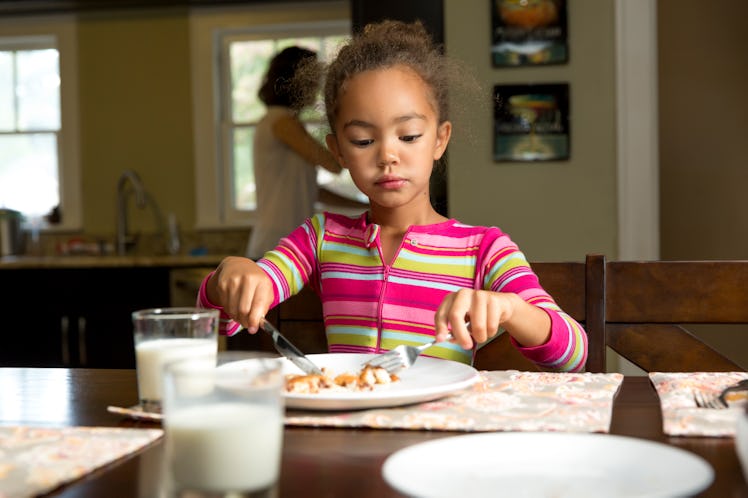How To Raise A Polite Kid, But Not A Brown-Nosing Suck-Up
Kids need to be kind and have integrity in the same measure.

Manners matter. How we present ourselves to the world is an important part of who we are. Kids who know how to say “please,” “thank you,” or “excuse me” express empathy, understanding, and basic decency. And although no parent wants to raise a kid so polite and demure that they become a brown-noser or pushover, parents should also strive to raise kids who are kind and socially aware. That’s no small order, says Jack Maypole, M.D., a pediatric doctor who specializes in developmental and behavioral pediatrics. But, with awareness, it can be done.
“We all want to live in a civil society,” says Maypole. “For the greater good of everybody, we want to live in a world where people are kind to each other, and pass on respect. One of our jobs as parents is to raise the next generation to be good to each other.”
Here are the five things that parents who raise polite kids do.
They Walk the Walk
Like trying to model any positive behavior, parents who raise polite kids don’t just tell their kids to be nice. They also exhibit polite behaviors themselves. Parents can’t tell their kids not to burp at the table and then burp at the table, or order them to say “please” and “thank you” to people who work in food service and then not do the same, Maypole stresses. Unless parents constantly exhibit behaviors that model politeness, their kids can think they can get away with being rude, too.
They Engage in Relentless Repetition and Coaching
“Teaching politeness will benefit more from relentless repetition and coaching than anything else,” says Maypole. Parents who have polite kids are consistent. They consistently remind their kids to engage in polite behaviors (“Put your phone away at the dinner table,” etc.) These reminders help kids internalize that these behaviors are not just recommended, but a way of being. Doing these things consistently will help polite behaviors become part of an unconscious process — as simple as breathing.
They Intercept Bad Behaviors and Help Kids Engage in Positive Ones
Parents with polite kids avoid scolding their kid when they are impolite, and instead try to positively redirect a kid from misbehaving by asking questions that could help them change their behavior. If a kid is about to pick their nose, parents should offer them a tissue and explain to them how much more sanitary and clean that is. If they’re reaching across someone at the table, parents can ask them if they would like the salt and tell them to use their words next time, Maypole says. It’s not about punishing kids for being impolite; it’s about helping them realize they can be polite if they do certain things a certain way.
They Take the Long View
“We don’t teach our dogs to pee outside on a Wednesday. We don’t teach our kids to use the right fork all of the sudden. It’s something that happens over months and years,” says Maypole. Still, teaching politeness is best done early, visually, and then, when they are toddlers, through coaching and talking to them. No 4-year-old is going to be able to tie a Windsor knot. But they might be able to know how to say “please.” So take it easy!
They Don’t Limit Politeness to Table Manners
Parents should make sure that when they are talking about being polite people to their kids, they’re modeling it in terms of being kind more than anything else. That looks different for everyone, says Maypole. “Some people might use a spiritual frame: We’re supposed to be good unto others. Other people may be more secular in their approach, but the vibe is the same: the Golden Rule. Our job here on the planet is to be good to each other, and that starts at home, and that starts every day here in the family. Politeness is a form of kindness and respect, so let’s pay that forward to each other,” he says.
This article was originally published on